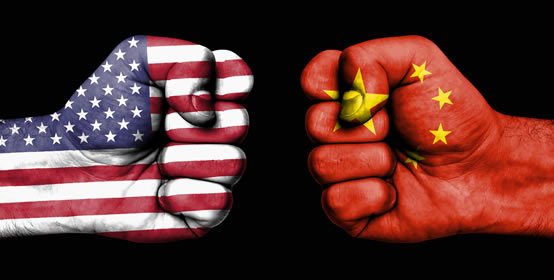
Until recently, China came in a close second to the U.S. when it came to technological innovations and inventions. Now, however, China is on the verge of overtaking the U.S. and the entire global technology industry.
The country's prowess has not gone unnoticed by American lawmakers and defense strategists. They continue to plan for ways to end the burgeoning trade war with China so that the U.S. can maintain its role as the world's technology leader.
It used to be that China either borrowed or mimicked foreign technology. It took what tech leaders in other countries developed and adapted these products for use within its own borders. It also used foreign technology to create similar products and services that it would then sell to overseas trade partners including the U.S.
However, the days of China borrowing or adapting foreign technology may soon be over. As China's president urges more investment in this industry, all signs point to China quickly becoming the leader in new technology. This surge of money going into the Chinese tech market could potentially put China significantly ahead of the U.S. in a matter of years.
Already China is making advancements in the global tech industry with innovations like hypersonic missiles, human gene editing trials, and quantum satellites. As Chinese tech leaders perfect these inventions, they continue to ease the country's reliance on foreign technology and transform China into an innovation powerhouse.
Perhaps more worrisome to American politicians and defense contractors is China's prowess for artificial intelligence, or AI. The Chinese president clearly appreciates the role that AI is playing in society right now and how it will shape the future. In 2017, with the president's encouragement, China launched a nationwide initiative to design and perfect a plethora of AI products including:
To accomplish the goal of this initiative, some of China's biggest tech firms have partnered together to create a veritable technological dream team.
American lawmakers and defense strategists have been keeping a close eye on China's advancements in the technology industry. They realize that China could pose a unique risk not only to the American economy but also the country's security if it manages to overtake the U.S. as a global technological leader.
Specifically, Defense Secretary James Mattis continues to call for an increase in funding for AI projects including the Department of Defense's Innovation Unit Experimental, or DIUx. Combating China's rise to technological prowess is a key component of Mattis's national defense strategy. He is urging the federal government to strengthen its own ties to American tech companies particularly AI startups.
Further, the American government is calling for an investigation into the hostile acquisition of the U.S. company Qualcomm. The Singapore company Broadcomm aims to buy Qualcomm, a move that is seen by American lawmakers as an attempt to weaken the company and put China at a marked advantage over the U.S. and its allies in the tech industry.
Finally, American lawmakers aim to thwart China's technological advancements by calling for American companies like AT&T and Verizon to stop selling phone plans that would include the use of China's Huawei phones. Reducing the availability of these phones along with putting a steep 30 percent tariff on solar panels made in China could create enough of a challenge to give the U.S. time to solidify its spot as the world's technological leader.
China is making serious advancements in the technology industry, so much so that U.S. defense leaders and lawmakers are taking prompt notice of it. American politicians and military insiders argue that China cannot be given the opportunity to overtake the U.S. as a global tech powerhouse. The effects could be detrimental to the American economy and security. U.S. lawmakers continue to devise ways to put a stop to the threat of a trade war with China with tariffs, putting pressure on American companies doing business with China, and investigating the hostile Chinese takeover bid of Qualcomm.